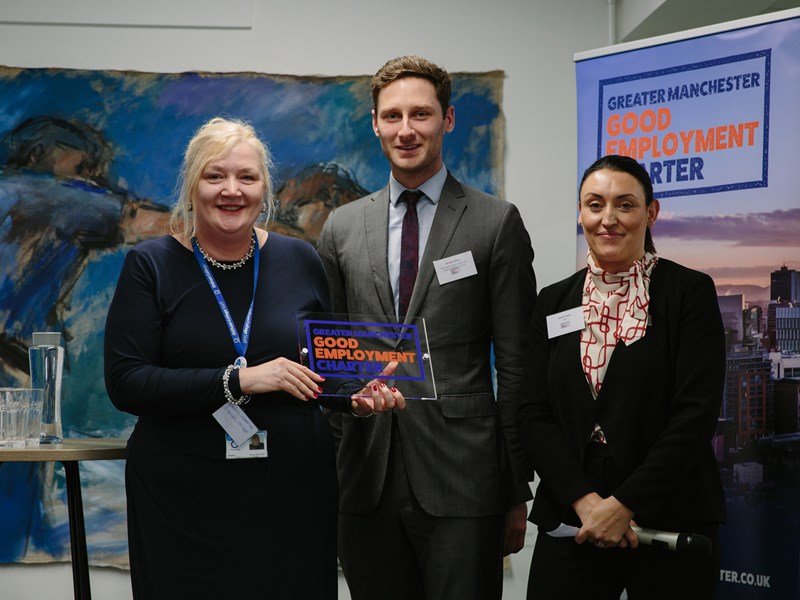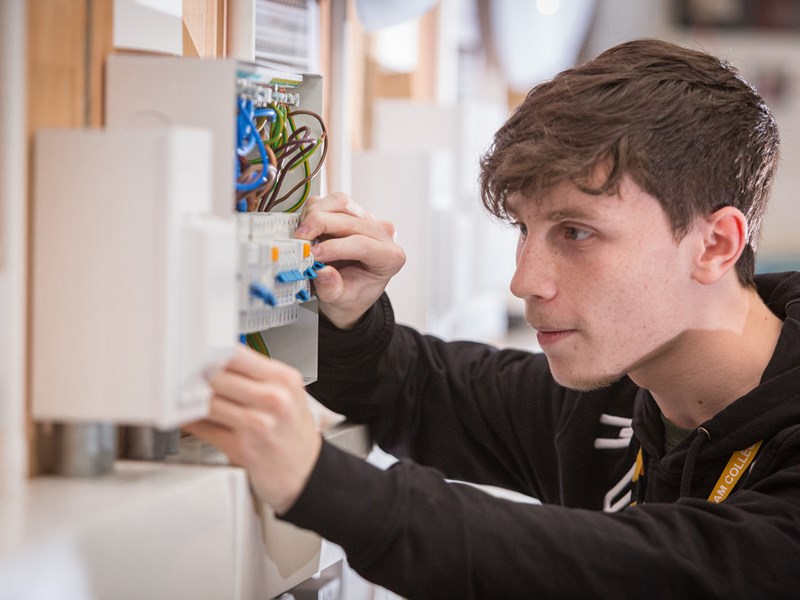Guest contributor: Alun Francis, Principal and CEO at Oldham College
(Written on 08 April 2020)
Further education colleges are used to dramatic changes in policy, and having to manage on tight budgets at short notice, but for all the dramas and challenges we have had in the past, nothing could have prepared us for the Covid-19 crisis. We are signed up to the Good Employment Charter, and we take it very seriously. Our priorities as a good employer have been to keep staff and learners safe, keep delivering our service, and help to protect the NHS.
Although schools and colleges both come under the umbrella of the Department of Education, general further education colleges (not sixth forms) are unique and different organisations. Our learners are not children. Over 2000 of ours are 16-18 year olds, while another 1500 are adults. We also have apprentices (1000) and undergraduates (600) to consider. Included in these numbers, are over 200 learners with high needs and sometimes complex medical conditions.
Adapting to Online Learning
At Oldham College, we were already in transition to online learning and remote working before the Prime Minister announced the closure of schools and colleges on 18th March. By that date, we had over 70 staff absent and attendance was falling because learners were anxious. The national announcement confirmed the decision we had already made.
I have to keep reminding external partners that we are not closed. Our physical site is shut with skeleton staffing, all observing social distancing. But the college is definitely open. For this, great thanks have to go to Google who, together with Microsoft, have designed the two main systems which schools and colleges are using to deliver learning online. We use Google Classroom, others use Microsoft Teams. They are brilliant and free to use.
We had begun our preparation for online learning before the close-down began. It is part of our strategic plan (digital is transforming every work place, so needs to transform our work too). We have been piloting Google Classroom this year, with 47 pioneering staff learning about its intricacies. We didn’t expect to have to learn from their experience so quickly. On the Friday before closedown was announced, we closed classes and asked those 47 to help train the rest of our staff. This was about as much preparation time as we could afford.
A lot of our time since we closed has been making sure that online and remote working is functioning well. We have to support the 230 tutors and assessors who are using the digital system, most of them for the first time, so managers are working with them, with online team meetings, and behind this, online support groups led by our advanced practitioners (our expert teaching coaches). Senior managers are anxious, but as always, our staff throw themselves into the task with enthusiasm. Sometimes you just need to trust them!
We also have to consider all those whose roles are not teaching roles. Our student support, including our specialist support teams, enrichment, safeguarding and welfare teams all have a caseload of vulnerable learners. Others are on standby to deliver face to face for any who absolutely need to be in college. Others – such as our recruitment teams still need to be making offers to next year’s learners – many of whom are in Year 11 with very worried parents.
Keeping Financially Stable
Some things are in our hands and some things are not. In the maelstrom following the close down, we are in the queue, along with everyone else, to see what decisions are going to be made about funding, GCSE and vocational assessments (not all exams), and a host of other issues. There are a small group of services – our estates, IT, HR, Quality and data teams - who work side by side with senior management to make sure that the behind the scenes work, which protect the college and makes it function well, is done.
Each of these teams has been making an immense contribution. Our funding is complex and, unlike schools, not guaranteed. Early on, we got reassurances about higher education (Office for Students), then 16-18 funding (Department of Education), and then adult (GMCA). Apprenticeships are paid by results, both in terms of completion and future recruitment – so this is at risk. We reforecast the budget, make sure everyone is paid, and assess how the various support schemes do or don’t apply to us. A small number of staff are eligible for “furlough”. We are anxious that they don’t feel insecure about their jobs and we will pay the 20% to top up their salaries. We are fortunate that we can do this, but we must also do the right thing for them, and for our community.
The finance team have been critical to making sure, every day, we are on top of the money. We are a social business and although we have more protection than most, we are more exposed than schools or sixth forms. And colleges can become insolvent – so making sure the books balance is serious work.
Supporting our Learners and Staff
Similarly, we want to manage the well-being of learners and staff when they are at home. Our student support, enrichment and HR teams are all concerned about physical and mental health, keeping a work life balance when you are stuck in one place, safety at work (when remote working) and providing as much support as we can. All college staff have permanent access to online counselling whenever they want it, and their managers are in regular contact as well. But not seeing them and being with them is a completely new challenge. We send out communications every day, and we are planning to do more on this the longer the close-down goes on for.
I have to keep reminding our senior team that we are only in week three and there is a long way to go. We have huge challenges to come. Up to 1000 learners are taking GCSE English and maths this summer, and teacher assessments will have to be done very well to make sure they get the grades they deserve. We are still waiting guidance on all the other qualifications that we teach. Keeping financially stable is another priority, but most important of all, keeping everyone as fit and healthy as we can.
We are also committed to supporting the NHS, which we do, first and foremost, by making it possible for learners and staff to work and study from home. There are a few IT challenges attached to this, including providing a few hundred laptops to learners at short notice. But we are managing that. We have also emptied our cupboards of all our protective gear (we had 9000 plastic aprons!) and given it to the Oldham Hub to distribute. And we are now in the process of recruiting a small battalion of volunteers, ready to help in any way they are needed, after Easter.
Being a good employer during this crisis is throwing up some pretty big challenges. But then it is, as the Government keep saying, an unprecedented crisis. There is no blueprint for what to do, so we rely on using our judgement, talking to other colleges and other public agencies, and sticking to our basic principles: keep everyone safe, support them as best we can, and make sure we are ready to contribute when the crisis begins to lift. One thing is certain amidst all of this: when things do begin to return to normal, the country is going to need further education colleges to be delivering volumes of highly skilled people, ready to get the economy moving again. So we are preparing for that too.


